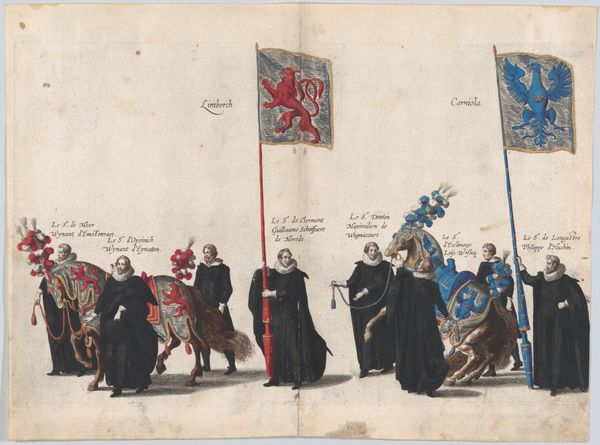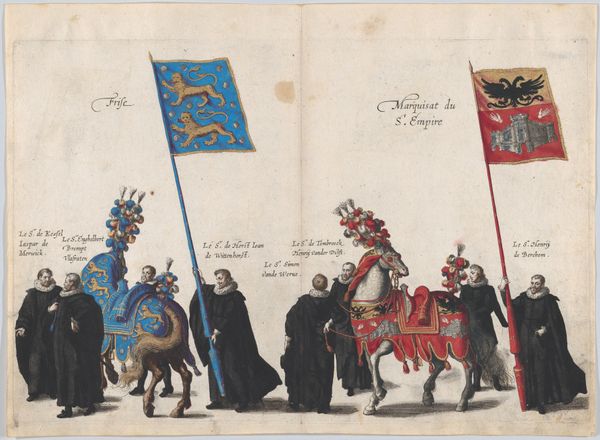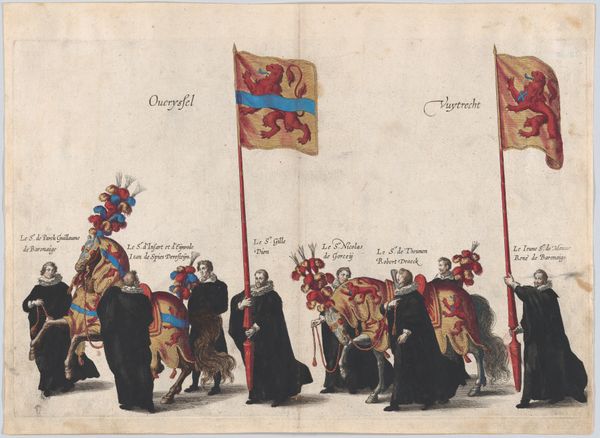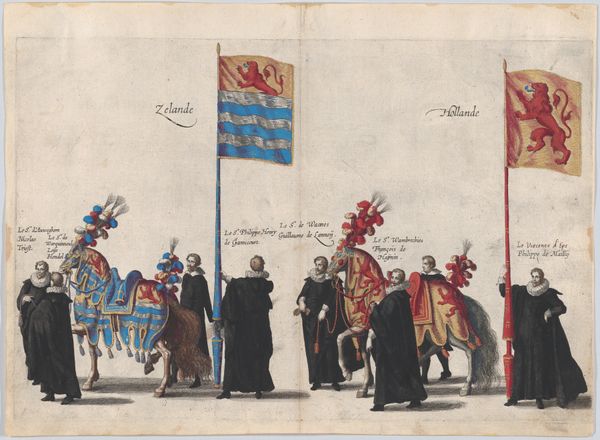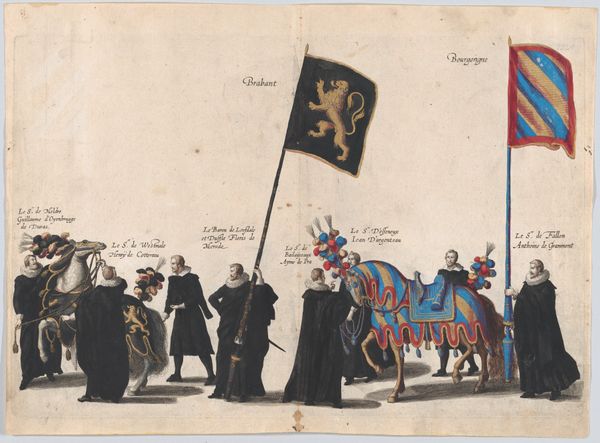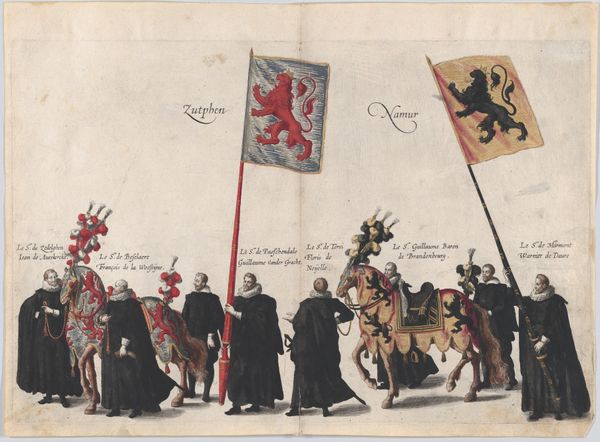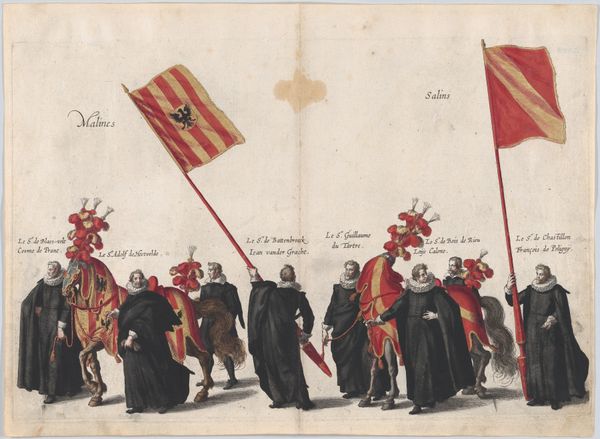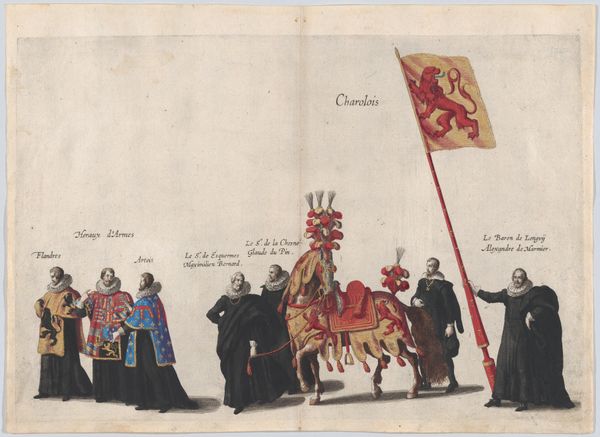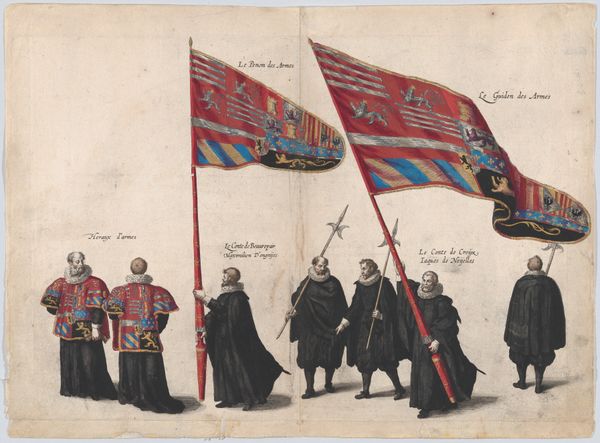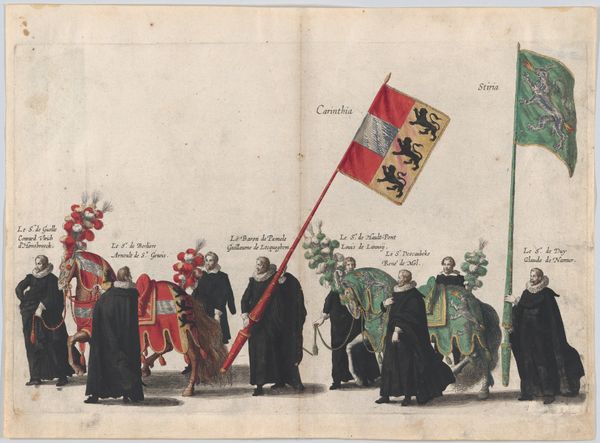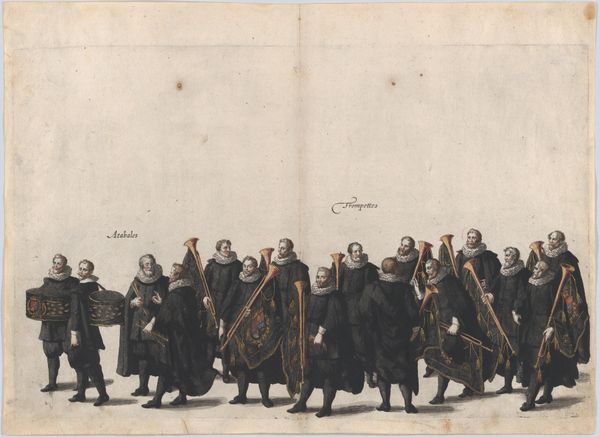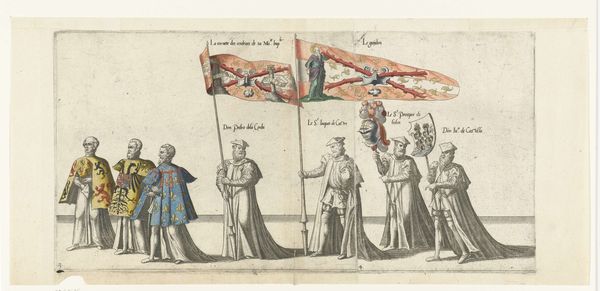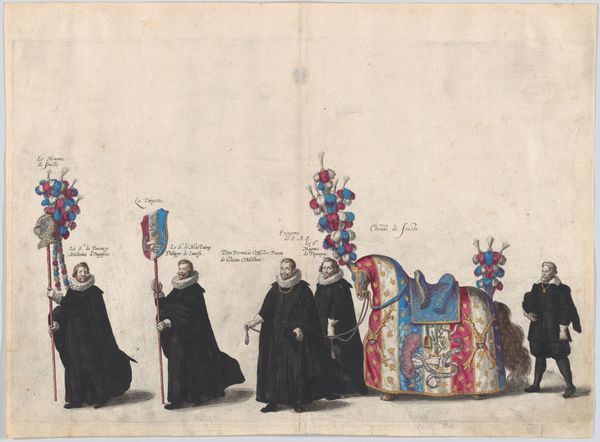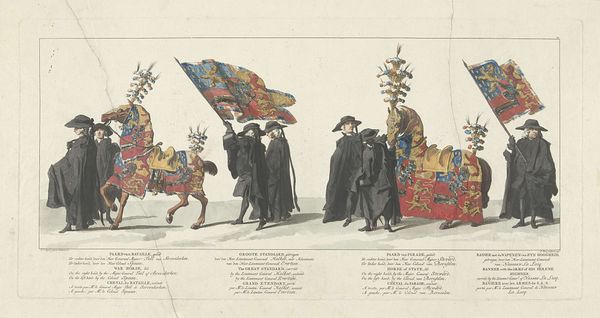
Plate 64: The magistrates of the city of Brussels marching in the funeral procession of Archduke Albert of Austria; from 'Pompa Funebris ... Alberti Pii' 1623
0:00
0:00
drawing, print, etching, engraving
#
portrait
#
drawing
#
baroque
# print
#
etching
#
figuration
#
horse
#
history-painting
#
engraving
Dimensions: Sheet: 11 1/4 in. × 15 in. (28.5 × 38.1 cm) Plate: 9 13/16 × 14 11/16 in. (25 × 37.3 cm)
Copyright: Public Domain
This is Plate 64 from 'Pompa Funebris ... Alberti Pii' by Cornelis Galle I, made in the early 17th century. It depicts magistrates of Brussels in a funeral procession for Archduke Albert of Austria. The print offers a glimpse into the intricate social and political hierarchies of the time. The Archduke represented the Catholic Habsburg rule over the Netherlands, a period marked by religious and political conflict. Galle, as an artist, was deeply embedded in this world, producing imagery that both reflected and shaped the perceptions of power. Notably, the magistrates are all men, highlighting the gendered nature of political power. The flags and heraldry, rich with symbolism, underscore the importance of lineage and regional identity. Their solemn march speaks to the rituals of power and mourning that were carefully orchestrated to maintain social order. The image, beyond its historical value, resonates with themes of identity, power, and the performance of grief. What does it mean to witness such a display of authority, and how does it shape our understanding of who gets to mourn and be mourned?
Comments
No comments
Be the first to comment and join the conversation on the ultimate creative platform.
